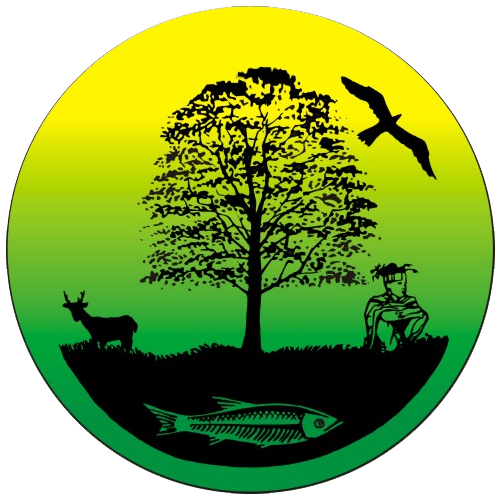
Ecology
Starting with the Basics: Ecology Defined

Understanding biodiversity and the efforts designed to conserve it requires first and foremost an understanding of ecology, the discipline that defines the Earth as the proverbial whole which is greater than the sum of its parts.
Understanding biodiversity and the efforts designed to conserve it requires first and foremost an understanding of ecology, the discipline that defines the Earth as the proverbial whole which is greater than the sum of its parts. Through the lens of ecology, the planet can better be appreciated as an intricate and dynamic interplay of living and non-living components, including the physical environment itself.
In as much as the Earth serves as a home to countless species flora and fauna, as well as landscapes and seascapes, ecology likewise encompasses a vast range of concepts, combining subject matter that deals with both the biological and Earth sciences. Not only is ecology concerned with organisms and their habitats, it also pays attention to the roles that these life forms play within their habitats (niches), as well as to the natural bio-geochemical cycles (water, oxygen and carbon, nitrogen, et al.) that are critical to supporting all life on the planet.
Ecology, as a field of study in and of itself, is still relatively young, despite the word’s origins that date back to the mid-19th century. In fact, it was only around the 1960s that ecology truly began to gain recognition and value as an independent, interdisciplinary field.

Recognizing the wondrously complex and dynamic connections between all living and non-living components of the world in which we live is the key first step to understanding and appreciating the value of biodiversity. (FPE)
In that light, beyond the scientific definitions and concepts, ecology perhaps may best be appreciated through a more practical and more relatable perspective. Take for instance the manner by which Galang, et al. expounded on the subject of ecological principles in the 2003 publication, “Seven Lenses (or Environmental Principles as if Adults Mattered).” The authors enumerated seven core messages that explain and emphasize – in non-technical terms – why, in a nutshell, ecology and the environment matter. These “seven lenses” are as follows:
- Nature knows best.
- All forms of life are equally important.
- Everything is connected to everything else.
- Everything changes.
- Everything must go somewhere.
- Ours is a finite Earth.
- Nature is beautiful and we are stewards of God’s creation.
Based on these tenets, appreciating ecology ultimately means recognizing that humankind is but a small piece of a larger, more intricate picture. People may have achieved so much in terms of social structures, knowledge, and technology throughout generations, yet the planet still holds much more power – mightily creative and destructive at the same time – over them.
The seven key principles also establish interdependence and equal importance among all forms of life on Earth, regardless of size, distribution, or function. Changes that affect even the minutest organisms can create a ripple effect that could bear tremendous impacts upon greater ecological interactions, observable or otherwise. In this sense, the call for greater awareness over “ecological footprints,” especially in this age of advanced modernization and industrialization resonates louder than ever.
In addition, Earth, despite its abundant and resilient nature and sheer grandeur, has its limits, and unfortunately, all signs point to human activity being the primary force behind its premature depletion and degradation. People have the sentient capacity, and thus a role, to acknowledge nature’s wonderful abilities and worrisome limitations alike. As conscious stewards – rather than abusive masters – of nature, humans have the greatest means to appreciate as well as utilize what it can offer. Awareness and sensitivity to the present ecological situation, along with an eye keen on the future, is therefore a daunting responsibility and a humbling privilege at the same time.
By recognition and acceptance of these principles alone, people can establish a genuine and impassioned foundation for advocacy and action towards the cause of environmental conservation and sustainability.
Reference
- Galang AP. 2003. Seven Lenses or Environmental Principles as if Adults Mattered. Makati City, Philippines: The Bookmark, Inc.
Additional Resources and References for Researchers
Literature
- Odum E, Barrett GW. 2004. Fundamentals of Ecology. Fifth Edition. USA: Cengage Learning. (Available online [Sections 1-4]: http://www.hawaii.edu/publichealth/ecohealth/si/course-ecohealth/readings/Odum_Barrett-Ch1-Sections1-4.pdf)
Online: General Information
- Center for Ecoliteracy - Core Ecological Concepts / Ecological Principles
- World Wildlife Fund for Nature (WWF) - Teachers’ Resources
- World Wildlife Fund for Nature (WWF) - Quick Overviews of Selected Environmental Topics
- Ecology Global Network - Home Page (Featuring various articles and resources about ecology)
- Cary Institute of Ecosystem Studies - Definition of Ecology
- About.com - Basic Facts and Concepts About Ecology
Online: Research and Indices
- Department of Environment and Natural Resources (DENR) - 2012 Environmental Performance Index (EPI): Philippines Summary
- Smithsonian Environmental Research Center (SERC) - Research Hub
- The World Bank (WB) - Environment Data Hub
- Yale University - Environmental Performance Index
Online: Working Papers
- The World Bank (WB) - Ecosystem Services and Green Growth (2012)
- The World Bank (WB) - The Environment, Public Health, and Human Ecology (1985)
Read More:
- What is Biodiversity?
- Cause for Concern: The Alarming Rate of Biodiversity Loss
- Why are We Losing Species?
- Taking a Stand: Strategies for Biodiversity Conservation
- Stewards of the Sacred Land: Indigenous Peoples and Community Conserved Areas
- Climate Change: The Thermal Threat
- Humanizing Climate Change: Impacts on Global Food Security

 DISPLAY CALENDAR
DISPLAY CALENDAR
 Read Policy Briefs
Read Policy Briefs
 View Our Partners
View Our Partners
 Access Grants MIS
Access Grants MIS
 Login to Webmail
Login to Webmail